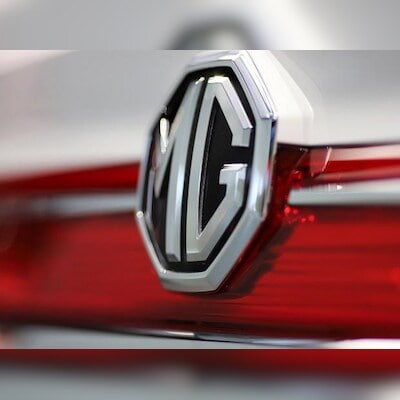JSW MG to launch 5 cars in next 12 months: CEO Emeritus Rajeev Chaba
MG currently sells five models in India: Hector, Gloster, Astor, Comet, and ZS. The first three are internal combustion engine cars, while the last two are electric cars.
Chaba stated that about 120,000 electric car sales are expected in India in 2024, recording a growth of about 30 per cent year-on-year (Y-o-Y). “The growth will not be as high as in 2023,” he mentioned. In 2023, the growth in electric car sales stood at about 90 per cent.
In March this year, the Sajjan Jindal-owned JSW Group acquired a 35 per cent shareholding in the car company. Financial institutions acquired an eight per cent shareholding, five per cent was allotted to employees, and three per cent was given to dealers. Therefore, the shareholding of its Chinese parent SAIC in the Indian unit has reduced to 49 per cent.
“The joint venture was declared in March. We should expand fast. As we speak, the second plant is being set up in Halol. Our total capacity will increase from 100,000 units per annum to 300,000 units per annum. When you have such capacity, you need products to fill the plant,” Chaba told reporters.
“One of the biggest priorities of the joint venture is to get approval for new products. I am happy to announce that we have got five of our new products approved, which will be launched in the next one year. Of these, two will be premium products, and three will be mainstream products,” he added.
The first product will be launched in the festive season, in September or October, he noted. “It is a crossover utility vehicle. Why a crossover? Because it has the comfort of a sedan and the utility and benefits of a sport utility vehicle. Just imagine a sport utility vehicle with a huge interior space. It will be loaded with features. I cannot give details about other products,” he added.
JSW Group announced plans in March to invest $5 billion by 2030 in a joint venture aimed at selling 1 million “new energy vehicles” (NEVs), which include electric cars and hybrid cars. The auto industry is currently divided over the issue of tax reduction for hybrid cars. Japanese giants like Maruti Suzuki and Toyota are advocating for tax cuts on hybrids, arguing that electric vehicles alone cannot achieve the necessary emissions reductions. However, homegrown players like Tata Motors and Mahindra & Mahindra oppose these tax cuts, insisting that only a full commitment to electric vehicles can truly decarbonise India’s roads.
On this issue, Chaba suggested that the government should rethink its approach to taxation. “Till now, taxation has been based on the size of the engine, length of the car, etc. If someone asks me what the taxation should be based on, we should consider four factors: environmental friendliness of the technology, the impact on fuel import bills, localisation levels in terms of the supply chain, and total cost of ownership,” he noted.
This means that if compressed natural gas (CNG) is better than petrol when analysed for these four factors, it should receive tax benefits. Similarly, if a hybrid car outperforms CNG on these parameters, it should get more tax benefits, he explained.
Chaba also stated that the auto industry in India should expect a 7-8 per cent growth in passenger vehicle sales this year, considering the high base effect, capacity increases, and high stock levels with dealers. He acknowledged that dealers are unhappy due to high stock levels. “Our situation is a bit better. Our dealers have stocks for 30-35 days, while at the industry level, stocks are at 60-65 days. We are working not only to re-energise our dealer network but also to ready them for significant expansion, keeping in mind the many launches we have planned,” he noted.
